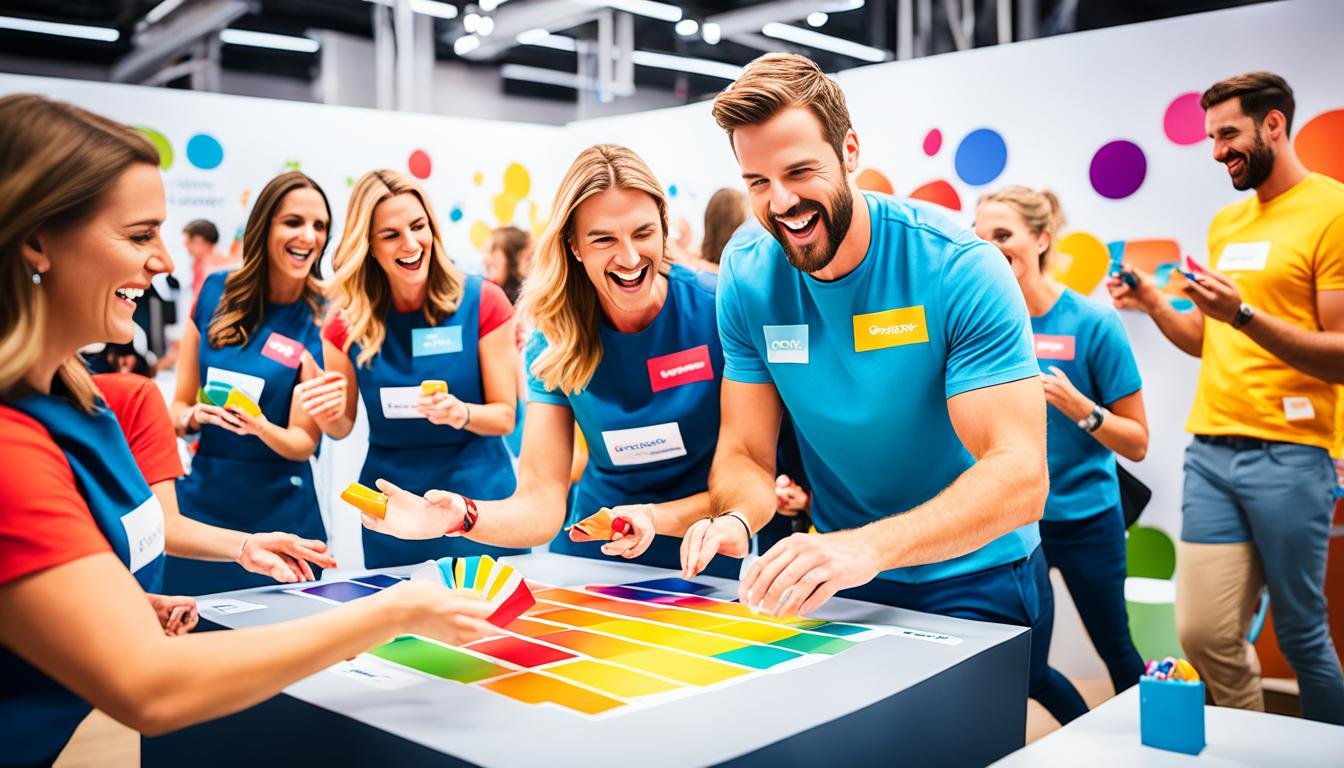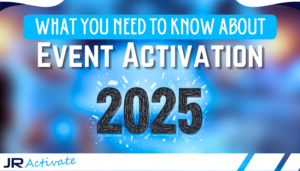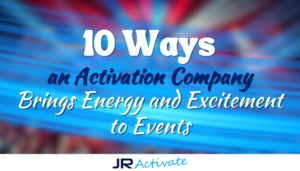Corporate activations are special marketing events that grab people’s attention and make brands more known. They create experiences that people remember, whether it’s launching a new product or hosting a corporate event. These events use things like experiential marketing and social media to make a big impact. Sales activation explained, these events are designed to not only create buzz and brand awareness, but also to drive sales and increase customer engagement. By creating memorable experiences and leveraging social media, companies can effectively reach their target audience and ultimately drive more sales. These activations often include interactive elements to make a lasting impression on consumers and encourage them to take action, such as making a purchase or signing up for a newsletter.
They aim to give people unique and fun experiences that match the brand’s goals. This helps the brand connect with its audience and meet its marketing targets.
In South Africa, JR Activate is a company that makes corporate activations that fit the brand’s values and goals. They use event marketing and interactive elements to reach the audience and make the brand more popular. They use things like pop-up shops, product launches, and sponsorships to grab people’s attention and get them interested in the brand.
Key Takeaways
- Corporate activations are immersive marketing events that engage audiences and boost brand awareness.
- Effective strategies include experiential marketing, social media activations, and partnering with influencers or celebrities.
- The goal is to create unique and engaging experiences that resonate with the target audience and achieve marketing objectives.
- Companies like JR Activate specialise in creating tailored corporate activations in South Africa.
- Pop-up shops, product launches, and sponsorships are examples of corporate activation strategies used to captivate consumers and drive brand engagement.
Understanding Corporate Activations
Corporate activations are now key in modern event marketing. They let brands connect with their audience in a unique way. These events aim to make brands more real, build strong connections, and increase loyalty through fun experiences and interactive parts.
Defining Corporate Activations
Corporate activations are special efforts that let brands meet consumers in a memorable way. They often come as experiential marketing campaigns. These create environments that show off what the brand offers or stands for. Using sights, sounds, and touch, these events try to grab people’s attention and make a mark.
One great example is JR Activate, a top South African agency in brand activation and event branding. They’ve done many activations for big clients, making experiences that share brand messages and engage people.
The Role of Corporate Activations in Event Marketing
Corporate activations are key in event marketing. They let brands blend their identity and messages into the event. By using things like logos and colours, they make the event feel connected to the brand.
These activations also help create excitement and get people talking on social media. They make moments that people want to share, spreading the brand further and getting more people involved.
Corporate activations are not just about creating a visually appealing space; they are about crafting an experience that resonates with the target audience on an emotional level.
What makes corporate activations work is how they connect brands and consumers deeply. By offering fun and engaging experiences, they make people feel part of something special. This builds loyalty and support for the brand.
Benefits of Corporate Activations
Corporate activations bring many benefits for brands wanting to boost their marketing and connect with people more deeply. They create experiences that people remember, helping brands become more known and build loyalty over time.
Increasing Brand Awareness and Recognition
Corporate activations greatly increase brand awareness and recognition. They make experiences that show off a brand’s unique character, values, and what it offers. This helps make a strong brand identity in people’s minds. JR Activate, a top experiential marketing agency in South Africa, excels in making activations that boost brand visibility and stick in people’s memories.
Engaging and Immersing Audiences
Corporate activations let people dive into a brand’s world. They use interactive parts, content made just for them, and experiences tailored to what people like and do. This makes a stronger, more meaningful connection with people. It makes them feel part of something special and builds a deeper emotional bond with the brand.
Generating Buzz and Social Media Sharing
Social media is key to the success of corporate activations today. Adding social media-friendly parts and asking people to share their experiences online creates a lot of excitement. Photos, videos, and reviews from people help spread the word, bringing in more people and making the brand more visible.
Corporate activations do more than just get people excited right away. They can lead to long-term benefits for brands. By giving unforgettable experiences that really speak to people, activations can build strong loyalty, bring people back, and turn them into brand fans.
Types of Corporate Activations
Corporate activations are many and varied, aiming to engage people in unique ways. They range from immersive marketing to product launches and pop-up events. Brands have many choices for their event plans. Let’s look at some top types of corporate activations.
Experiential Marketing Activations
Experiential marketing makes brand experiences that touch all senses. It uses things like branded lounges or virtual reality to let people dive into the brand. These events create memorable moments that spread the word and boost brand awareness.
Product Launches and Demonstrations
Product launches and demos are great for showing off new items in an engaging way. They often have interactive displays for people to try products themselves. This approach builds loyalty and encourages people to talk about the brand.
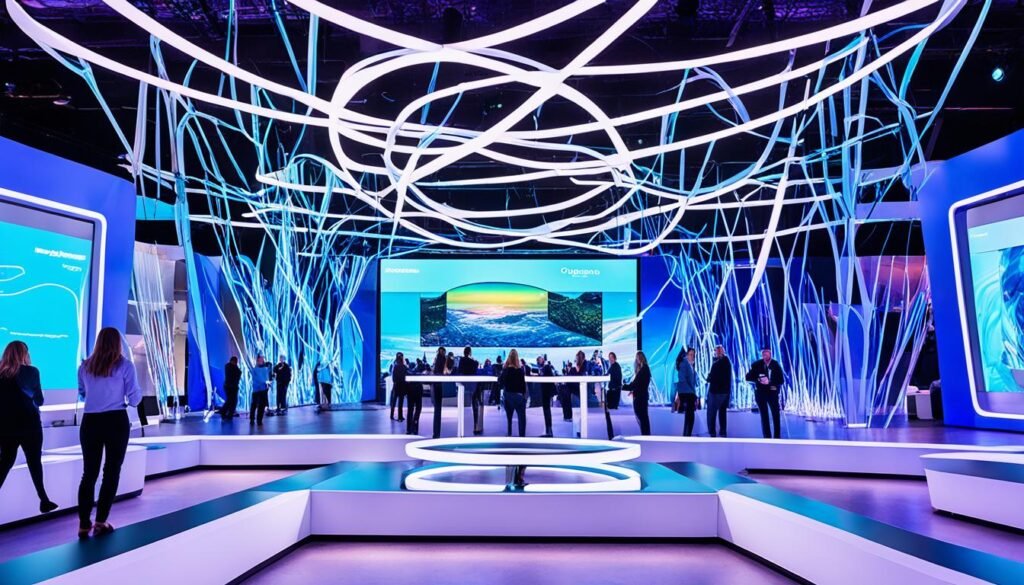
Sponsored Events and Partnerships
Sponsored events and partnerships with influencers or stars help brands reach more people and seem more credible. Working with famous people or events taps into their fans and brings in new customers. These efforts include branded social media posts and co-branded items to spread the message further.
Pop-Up Shops and Installations
Pop-up shops and installations let brands meet customers in new places. They can be anything from short-term stores to interactive art pieces. Pop-ups create a special feeling of urgency, making people more likely to interact with the brand. Some cool examples include:
- Tasting menus with local chefs
- Virtual reality experiences of new products
- Competitions, like “pretzel pits” at beer festivals
- Branded photo booths or lounges at music festivals
JR Activate, a top experiential marketing agency in South Africa, leads in creating innovative pop-up installations for brands across industries.
| Activation Type | Key Benefits | Examples |
|---|---|---|
| Experiential Marketing | Immersive brand experiences, sensory engagement | Interactive installations, virtual reality |
| Product Launches | Hands-on product trials, building brand loyalty | Interactive displays, product demonstrations |
| Sponsored Events | Wider audience reach, credibility through partnerships | Influencer collaborations, co-branded merchandise |
| Pop-Up Installations | Exclusivity, urgency, unexpected locations | Tasting menus, competitions, branded lounges |
Planning and Executing Corporate Activations
Creating a successful corporate activation needs careful planning and a clear strategy. It’s important to set clear goals, know your audience, pick the right venue, and use engaging tech and interactive parts. This approach helps make sure the event has a big impact and meets its goals.
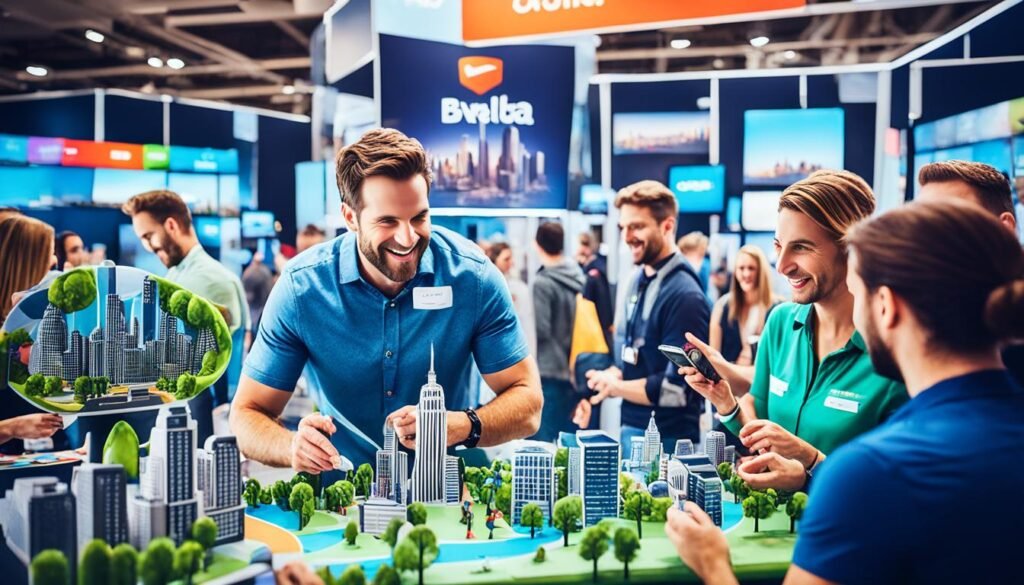
Setting Goals and Objectives
Starting with clear goals is key to a great corporate activation. These goals act as a guide for planning and help measure success. Whether it’s to boost brand awareness, launch a new product, or increase customer loyalty, a clear vision is crucial. JR Activate, a top South African event company, says, “Setting clear, achievable goals is vital for a meaningful and impactful corporate activation.”
Identifying Target Audiences
Knowing who you’re targeting is vital for a successful corporate activation. By creating detailed personas of your customers and stakeholders, you can make sure the event connects with them. Finding your target audience helps plan better and ensures the event draws in the right people and gets the engagement you want.
Choosing the Right Venue and Format
Picking the right venue and format is crucial for a corporate activation. It should match the audience’s likes and the event’s aims. Think about things like how easy it is to get to, how many people it can hold, and the feel of the place. Going for hybrid events is also smart, mixing the best of in-person and online experiences.
“Hybrid events have become more popular since the pandemic, offering a flexible way to reach different audiences and boost engagement.” – JR Activate
Incorporating Technology and Interactive Elements
Today, using the latest tech and interactive parts is key for memorable corporate activations. Tools like live-streaming, virtual reality, and gamification can make the event stand out. Using tech in brand activations helps connect with customers in new ways, supports business growth, and attracts a wide audience.
Interactive parts can include:
- Augmented reality installations
- Interactive product demos
- Customisable digital content
- Gamified challenges and rewards
By mixing tech and interactivity, corporate activations can create deep, memorable experiences. Experiential marketing activations can increase brand awareness through word-of-mouth, social media, and press coverage. They’re a powerful tool for event marketers.
Measuring the Success of Corporate Activations
It’s vital to check how well corporate activations do. We need to set clear goals and use key performance indicators (KPIs) to measure success. This includes things like how happy attendees were, how many leads were generated, or how much social media buzz was made.
Key Performance Indicators (KPIs)
Choosing the right KPIs is key. They should match the event’s goals, like boosting brand awareness or getting more leads. Important KPIs include event ROI, how happy attendees were, and social media stats like mentions and engagement rates. JR Activate, a top experiential marketing agency in South Africa, stresses the need for clear, measurable KPIs to truly measure success.
Gathering Feedback and Insights
Getting feedback from attendees and stakeholders is crucial to understand an event’s success. Post-event surveys are great for learning about satisfaction and the event’s overall impact. Interviews with stakeholders and social media analysis offer deeper insights. By regularly collecting and reviewing feedback, brands can improve their events for better results.

